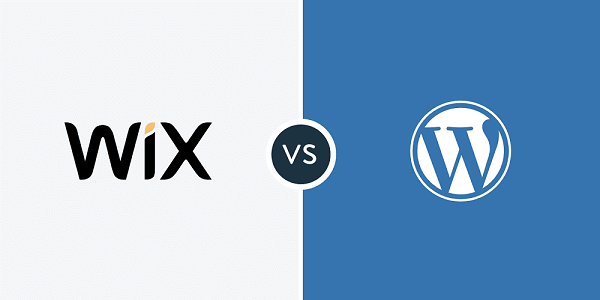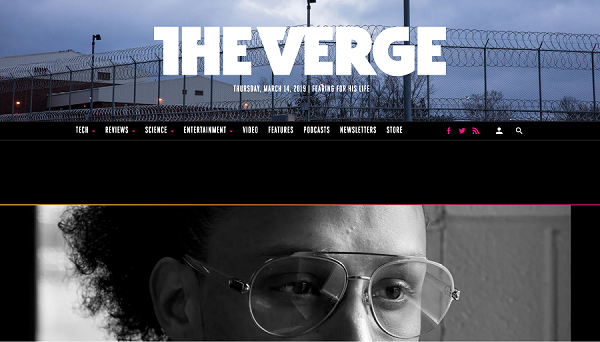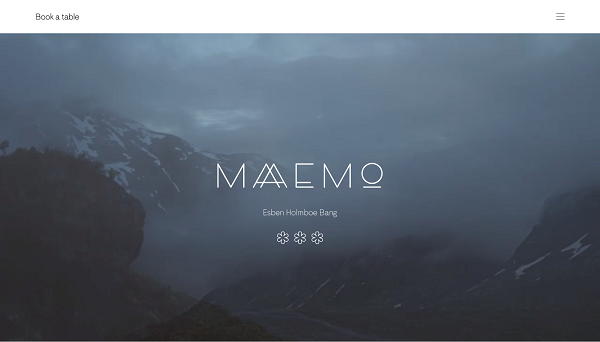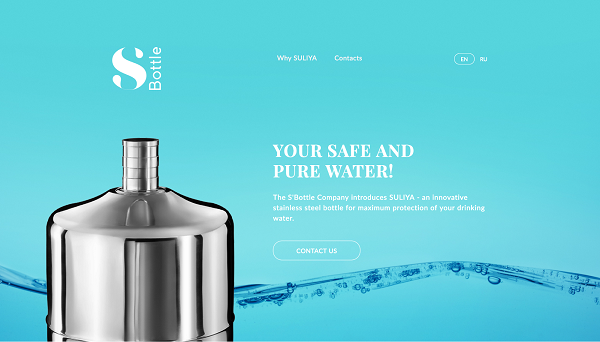What is an Informational Website and How is it Built?
Content- and design-oriented websites provide not only information about a topic or business of interest but also a pleasant experience. Informational websites are tools attracting your potential customers.
Some time ago, having a website for business was just a small advantage against competitors. Now, over 50% of potential customers don’t trust businesses without websites.
Different businesses benefit from different kinds of websites. What they all have in common is improving their credibility and luring people in.
So what is an informational website? Do you need to have one? And how do you build one to make it an instant success?
Let’s find out.
Informational website definition
Wikipedia.org is an informational website. So is the website of your favorite coffee shop. And so is theverge.com.
All of these are different from each other, but perfectly fit under the definition of an informational website.
An informational website is a site with a purpose to provide detailed information about a specific topic, such as science, economics, movies, etc.
For businesses, however, the definition can be described a little differently.
Businesses create websites that provide branded and customized information about the company and all related topics for customers, investors, and community members.
It also acts as a sales tool to attract new clients and investors.
A good informational website for business will catch a visitor’s attention in less than 5 seconds. That’s why good content and design play key roles for such websites.
However, don’t mistake it for a functional website selling a product online.
Does your company need an informational website?
Having a business without a website is like being a civilian of a country and not having a government issued id card.
Is an informational website good for your business? Well, let’s see how many boxes you can check:
- Your business has a physical location.
- You are not selling a digital product.
- The customers of your business aren’t looking to buy online.
- Information about your business is important to making buying decisions.
- You have a lot to show off for potential customers and investors.
If you’ve checked at least three of those boxes, your business would definitely benefit from having an informational website.
Informational websites are the most useful to businesses with a physical location – restaurants, cafés, night clubs, and many others.
The transaction for the services of such businesses (restaurants, cafes, night clubs) happens at the physical location and not online. Therefore, an informational website can make the most use of itself. Information provided on the website could help a lot of people make an educated purchasing decision at the physical location or reduce queues at the point of sale.
Also, if you’ve won any awards, have a famous chef cooking in your kitchen, or an innovative product, this can lure customers in. Show it off.
And there’s more good news for you. Setting up an informational website is usually really easy.
How to build an informational website
First and foremost, design and content are the most important features of an informational website. It should catch the attention the moment someone enters the website.
To reach this goal and make a website successful, we reviewed the most important steps of the process.
#1 Choosing the right building platform

Because design and content management is so important for informational websites, choosing the right platform to build it on is crucial.
What should you look at?
Choice of design templates
Check whether themes are mobile optimized. Over half of visitors access the internet through mobile devices. It would be a shame if they couldn’t reach your website.
Themes should also be modern, clean, and easily customizable.
Uptime
Whether you are choosing a host or a hosted website building service, uptime is a major factor. You want your website to be accessible and fully functional 24/7.
Price
Building a website through CMS (content management system) is only free with some conditions. You will have to pay for domain name and hosting services in any case.
A free website builder is not really a great choice as well–unless you are fine with a subdomain like (.wix.com) and many of the limitations that come with it. In my opinion, that does not look professional.
Before choosing the platform, check the prices, compare them, and don’t forget to include maintenance costs too.
Additional features
Building a website with a CMS is a flexible experience. There are thousands of widgets to choose from, you can often install your own apps and designs. On the other hand, it requires more technical knowledge.
Website builders solve this issue. Most of them offer drag-and-drop editors to make the website building process easy and intuitive. Be aware that the choice of additional widgets and apps is limited. If you are choosing a website builder, look for the one that’s offering the most and highest quality features.
If you are building an informational website on your own, you have two choices. You can do it through CMS’s or a website building tool.
For CMSs, my choice would be WordPress.org. It offers more than 54,000 plugins to customize the site and is easy to use. You can even install a widget like Elementor, to add drag-and-drop functionality. A WordPress caching plugin like WP Rocket is a great choice if you want to make your website faster in a few clicks, saving time and effort.
Ucraft would be my choice for a website builder. Although not the most popular, it keeps growing and offering new functions every day. It’s extremely affordable as well.
#2 Choosing web hosting for CMS
While website builders provide you with hosting, you might need to find a hosting provider if you are choosing a CMS.
Uptime is the most important factor for choosing a host. However, if you’ve decided to use CMS, look for a host offering one-click installation for your chosen platform.
Costs are also important. While informational websites usually don’t require heavy features like e-commerce does and are not so traffic-heavy, you might get away with a shared hosting option. It’s the cheapest and also quite versatile. You might avoid higher costs of VPS or dedicated hosting.
Another thing to consider is the domain name registration. Most of the hosts include it in their premium plans, so you don’t have to pay extra. Be sure to check on this so you know what to expect.
#3 Designing an informational website
It’s really important that from the moment someone enters the page it’s clear what your company does.
Branding ensures that your company is memorized and the next time the person sees your physical location, he remembers all about your beautiful website. How do you achieve that?
Smart, clean, modern
It’s your holy trinity. Make the website easy to navigate. Place calls to action in headers and footers. Don’t forget about the search bar if you’ve got a lot of information to display.
Contact forms and information about the company should be easy to find. Make the user experience your main goal.
Avoid features that serve only a purpose of being “pretty.” Leave these for functional websites. They can distract their users all they want.
Also, use your own pictures and images; avoid stock photos. Show-off your place, works, and employees. Don’t forget about the quality either.
Content is King
Especially if we are talking about the informational website.
People are going to actually read it if the content is good. And if it’s really, really good, you might even get responses in the comment section.
The times when you could cheat Google algorithms are long gone. Now, Google follows visitors to see whether they like the page or not and whether it should go up on the search results list.
Make that content useful as well. Describe what you do, and include tutorials or interviews. Everything that is unique to your business will make the content more interesting and engaging.
Extra features
You can get one step further by adding extra features and taking some work off of your employees.
Online reservation. If you own a bar or a restaurant, an online reservation system can reduce the number of those time-consuming calls. Also, people try to avoid phone calls as much as possible nowadays. Use it to your advantage.
Event calendar. Event calendar can be a useful function if you have a lot of events going on in your place. It promotes engagement as well.
Best informational website examples
THE VERGE

The Verge is one of my all time favorites. The design is simple, yet original. It catches the eye once you enter the website. Content is another topic, just check it out.
Maaemo

When you talk about modern and beautiful design, Maaemo nailed it. It’s as good as the design can get.
S-Bottle

S-Bottle makes learning about their product interesting and engaging. Not to mention the beautiful and clean design.
Conclusion
Having a website is a necessity. And to have an advantage against your competitors, it has to be truly original.
Informational websites serve their purpose best for businesses that have a physical location and don’t sell anything online. It grows brand awareness, credibility, and hopefully your customer list.
Although, to achieve that goal, the website has to be built in a smart way, catching the eye from the first glance.
Read Also
How to Create a Website [Ultimate Guide]
How to Start a Lifestyle Blog: 8 Tips to Make Your Blog a Success
How to Make a Portfolio Website and Start Getting More Clients: The Ultimate Guide
Elementor Page Builder: This is Your New Must Have WordPress Plugin
Don’t miss out these all-time favourites
- The best hosting for a WordPress website. Tap our link to get the best price on the market with 82% off. If HostPapa didn’t impress you check out other alternatives.
- Monthly SEO service and On-Page SEO - to increase your website organic traffic.
- Website Installation service - to get your template up and running within just 6 hours without hassle. No minute is wasted and the work is going.
- ONE Membership - to download unlimited number of WordPress themes, plugins, ppt and other products within one license. Since bigger is always better.
Get more to your email
Subscribe to our newsletter and access exclusive content and offers available only to MonsterPost subscribers.


Leave a Reply
You must be logged in to post a comment.